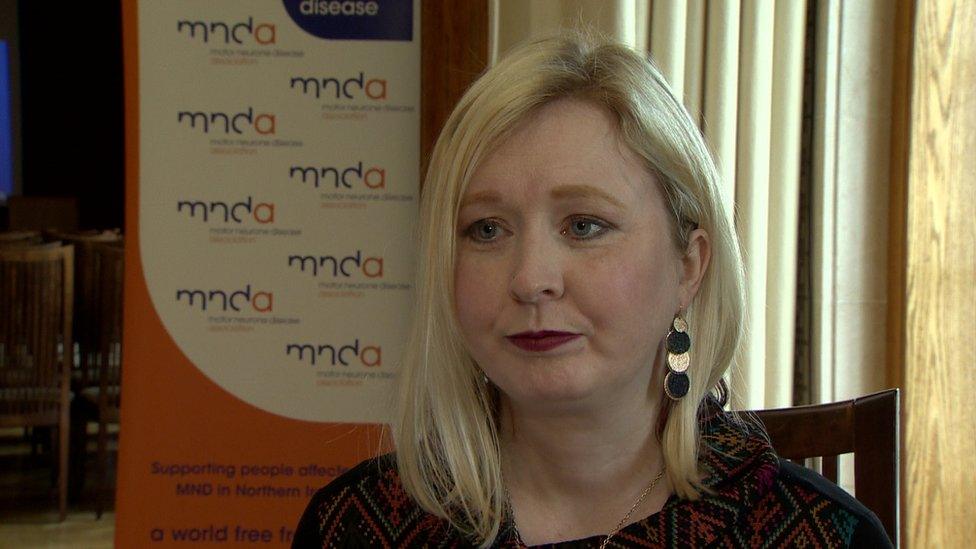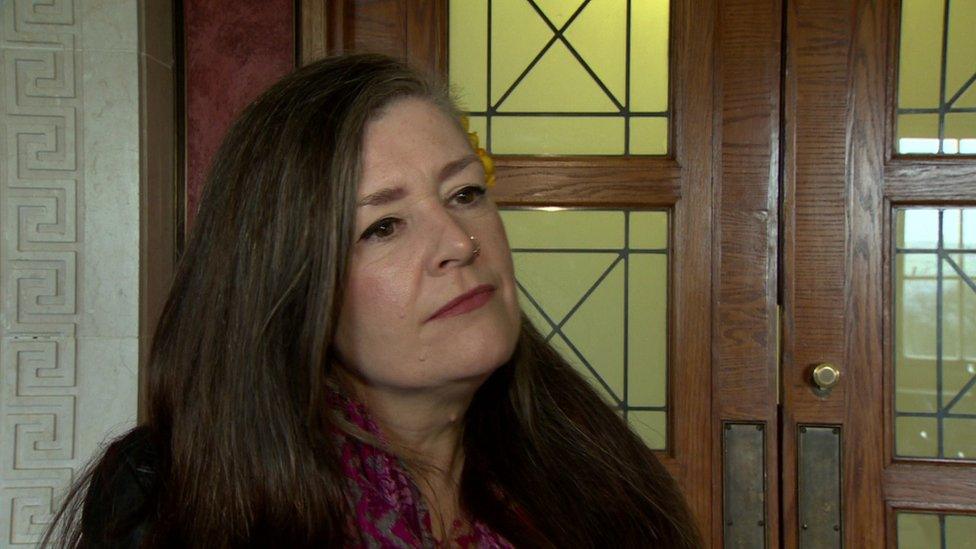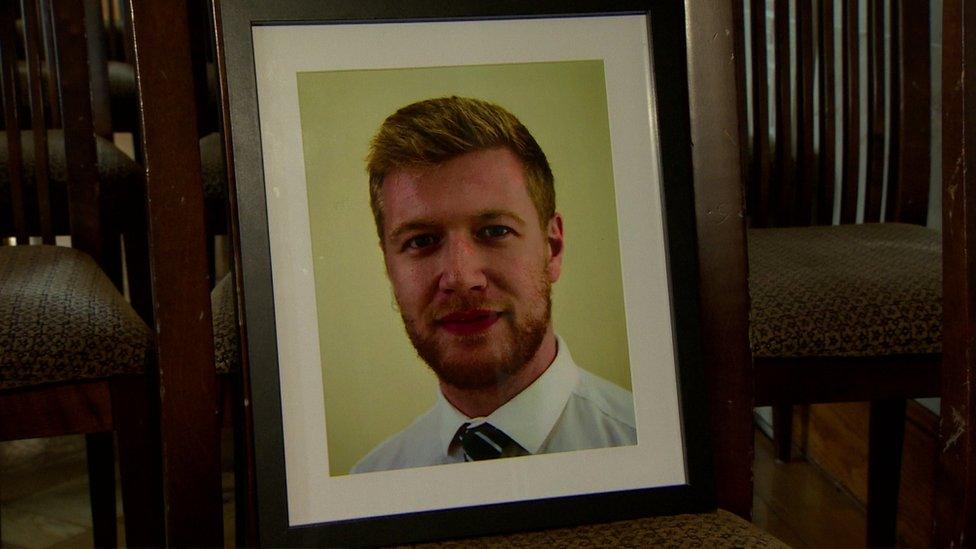Motor neurone disease: People in NI 'waiting too long for tests'
- Published

Letitia Hutchinson says her diagnosis has been devastating for her and her family
A woman with motor neurone disease (MND) has said patients in Northern Ireland are waiting too long for a crucial diagnostic test.
Letitia Hutchinson was diagnosed with the fatal neurological condition, which affects speech, movement and breathing, last year.
She said paying privately for the test meant she could access care faster.
More than half of patients with the condition die within two years of diagnosis; a third die within a year.
The Motor Neurone Disease Association has called for patients to have better access to services in Northern Ireland.
Letitia had to give up her successful business when she was diagnosed last year at the age of 40.
She paid for the test she needed after initially being diagnosed with carpal tunnel syndrome and has since moved to a different health trust in pursuit of better support.
"I started experiencing symptoms in October 2021 in my hands and after continuously going to the GP four or five times I eventually did get to see a neurologist seven months later," she said.
"The only reason I think I got my care faster was because I paid for some of my testing privately.
"The nerve conduction test, which is crucial to finding out if there's anything wrong, there's a two year waiting list.
'Rollercoaster of emotions'
"I knew I couldn't wait that long - I knew there was something desperately wrong so I paid for it myself and yes it showed up that there was something wrong.
"It has been a rollercoaster of emotions, devastation, coping with things that I used to be able to do that I can't do now.
She added: "Everything is very slow and with a fast progressing disease it needs to be faster."
A report by the charity Motor Neurone Disease Association found there was regional disparity across Northern Ireland in the provision of care.
It has made three recommendations:
the creation of a motor neurone disease regional care network
support for unpaid family carers
improved access to housing adaptation
Clare-Anne Magee from the charity said there was a consensus among people living with MND that the further away from Belfast patients live the more limited the access to services.
She said: "What we're calling for is a more regional approach, a more holistic approach.

Deborah McFarlane says more support needs to be offered for those caring for people with MND
"One of the things the [National Institute for Health and Care Excellence] guidelines are recommending is a multi-disciplinary approach where a patient with MND can present at a clinic and be receiving care with respiratory services, physio services, nutrition, palliative care, neurology will all be seen within that one clinic.
"At the minute that coordinated care is not happening.
"What we really want to see is that regional approach being taken so that people with MND, no matter where they live in Northern Ireland, will have access to that care and support.
"We are looking for more community-based support."
There are two specialist MND nurses and one specialist MND consultant in Northern Ireland.
Altogether there are 21 neurologists and 37 nurse specialists in neurology.
Patients are calling for greater awareness of the disease.
Letitia is about to join a drug trial in Dublin called Courage.
She'll be the 12th person to get the drug on the island of Ireland but there are no trials in Northern Ireland.
She said: "It's in phase three so there's only 11 people so far and I'll be the 12th out of the 460 people [with MND] on this island."
"I'd like to see trials offered in Belfast, more opportunities given to us," she added.
'MND strips you of who you are'
Letitia worries about support for her family.
"My journey with motor neurone disease has been devastating - it has devastated the family and it has been extremely difficult," she said.
"We're not getting the care that we need, especially mental health care for a disease that is so horrendous and strips you of who you are as a person.
"There's no mental health care for the person diagnosed and for the carer of the person, the husband or wife who ends up becoming the carer of that person."

Deborah's nephew Christopher Armstrong died after being diagnosed with MND
That is something Deborah McFarlane is also desperate for. Her 31-year old nephew Christopher Armstrong died in December after living three years with MND.
His first daughter will be born in April this year.
She said: "His wife was his fulltime carer. My mum and dad, who are in their eighties, are distraught.
"We are left with trauma and we are also left with guilt."
The Department of Health said it recognised that there were "significant pressures" on neurology services in Northern Ireland, including services for those diagnosed with MND.
A report by the department on the Regional Review of Neurology, tasked with identifying the configuration of services for the next 10 to 15 years, is due to be completed this year.
The department said: "The ability to take forward any additional services or reconfiguration in this area will be dependent both on having ministerial decision-making ability and the availability of resources."